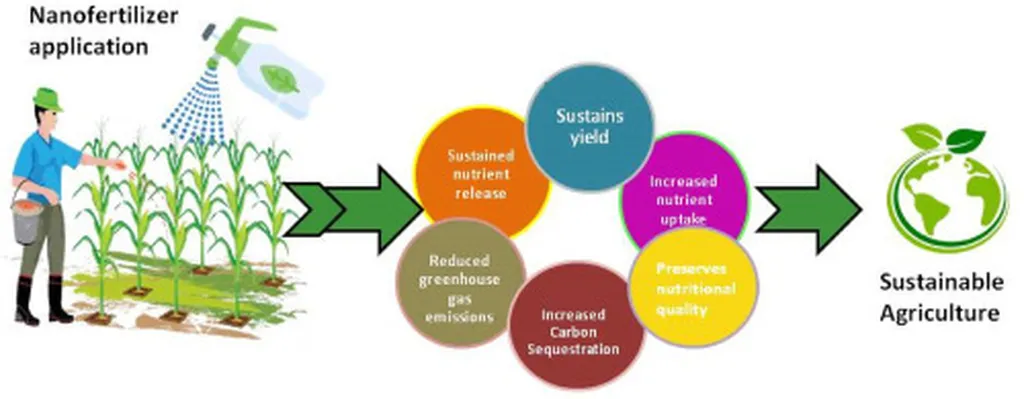In the heart of Seoul, South Korea, a quiet revolution is taking place in the fields of agriculture and nanotechnology. Jayanta Kumar Patra, a researcher at Dongguk University-Seoul’s Department of Food Science and Biotechnology, is leading a charge that could redefine how we approach sustainable agriculture and food security. His latest work, published in *Frontiers in Nanotechnology* (which translates to *Frontiers in Nanotechnology* in English), delves into the world of nanofertilizers, a cutting-edge intersection of agricultural nanotechnology and sustainable farming practices.
Patra’s research explores how nanofertilizers—fertilizers engineered at the nanoscale—can enhance nutrient delivery to crops, reduce environmental impact, and boost agricultural productivity. “Nanofertilizers offer a precision agriculture tool that can potentially minimize nutrient loss and improve crop yields,” Patra explains. This innovation is not just about efficiency; it’s about sustainability. By targeting nutrient delivery, nanofertilizers can reduce the need for excessive fertilizer application, which often leads to soil degradation and water pollution.
The implications for the agricultural sector are profound. As the global population grows, so does the demand for food. Traditional farming methods, while effective, often struggle to meet this demand sustainably. Nanofertilizers could bridge this gap by optimizing resource use and enhancing crop resilience. “The potential to improve food security while reducing environmental footprint is immense,” Patra notes, highlighting the dual benefits of this technology.
But the journey is not without challenges. The commercialization of nanofertilizers faces hurdles such as regulatory approvals, scalability, and public acceptance. Patra’s work aims to address these challenges by providing a comprehensive overview of the advancements and obstacles in the field. His research could pave the way for future developments, shaping policies and practices that foster the adoption of nanofertilizers.
The energy sector, too, stands to gain from these advancements. Sustainable agriculture reduces the carbon footprint associated with food production, aligning with global efforts to combat climate change. As Patra’s research gains traction, it could inspire further innovation in agro-nanotechnology, driving a new era of sustainable and efficient farming practices.
In the end, Patra’s work is a testament to the power of interdisciplinary research. By merging nanotechnology with agriculture, he is not just advancing science; he is contributing to a more sustainable future. As the world grapples with the challenges of feeding a growing population, innovations like nanofertilizers offer a glimmer of hope, a testament to human ingenuity and our relentless pursuit of progress.

